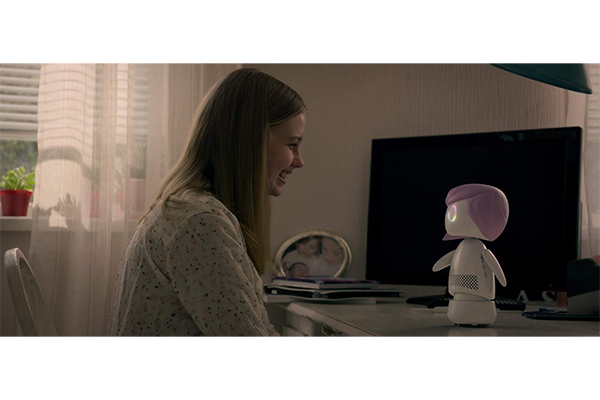“Black Mirror” is back in full force with its signature social commentary, but some of the stories aren’t as strong as they could be.
The fifth season of Netflix’s futuristic anthology series arrived exclusively on the streaming platform June 5. Season 5 includes three new installments written by series creator Charlie Brooker. All of the installments feature diverse and unique perspectives on various technological nightmares.
If there’s one thing that’s consistent throughout all three episodes, it’s the quality of performance. Each story revolves around numerous characters, and they all bring something new and impressive to the table.
In “Striking Vipers,” Anthony Mackie (Sam Wilson/Falcon in “Captain America: The Winter Soldier”) puts on an isolated and reclusive performance as Danny. His subtle facial expressions and physical performance allude to the internal battle between him and his sexuality.
Andrew Scott (C in “Spectre”) delivers an unhinged and terrifying experience with his performance of Chris in “Smithereens.” His emotional yet menacing delivery of dialogue encourages the audience to feel a sorrowful terror.
In the last installment, “Rachel, Jack and Ashley Too,” Miley Cyrus shines in an ironic portrayal of a famous singer living a double life. The faux perkiness in her musical performances is a stark contrast to the somber and muted emotional work Cyrus does throughout the story.
The stories in these episodes range from being conceptually interesting to completely hokey. The most subtle yet enticing episode is “Striking Vipers.” A romantic relationship in virtual reality that forms between two men, with one playing a woman, leads to an interesting analysis on the boundaries of sexuality. In true “Black Mirror” style, it combines a debate rooted in modern times with a technological twist.
The second, and arguably most tense, episode is “Smithereens.” An angered ride-share driver uses his supposed profession to kidnap an employee at a social media company he has ill feelings toward. The episode shows the struggle between the kidnapper and his victim in addition to the way the world digitally views the situation. The plot explores the distractive dangers of social media and how fast information can spread.
The last installment, “Rachel, Jack and Ashley Too,” is easily the weakest of the season. It’s a convoluted story about a robotic doll that is programmed with the artificial intelligence of a popular singer. The scope of the story is overcomplicated, and conventional tropes are a crutch. With interesting ideas, such as the post-mortem release of celebrity products and empathy with robotic companions, it’s a shame Booker couldn’t have tied it together in a neater bow.
One consistent aspect throughout the season is the stellar cinematography. Each episode features unique lighting and color schemes. “Smithereens” features a green, natural color pattern highlighting lush foliage and fields. This creates a stark contrast with the very man-made technological world the characters live in. “ … Ashley Too” features a dull, unfiltered visual landscape that emphasizes the true reality of the situation. “Striking Vipers” showcases the duality in its characters with differing light tones.
Although one of this season’s segments is not as strong as the rest, Black Mirror Season 5 is still a compelling and frightening entry in the long-running series.
3.5/5 stars














